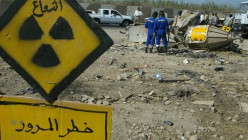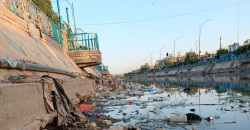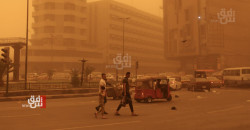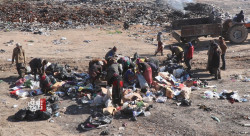Beyond acceptable limits: Iraq's noise levels threaten mental health

Shafaq News / Iraq is facing an escalating public health threat posed by noise pollution, environmental officials warned Thursday, urging immediate nationwide efforts to curb rising sound levels.
Samim Salam, head of the Al-Furat Environmental Center, identified to Shafaq News many sources of noise pollution in Iraq, including transportation (cars, trucks, motorcycles), industrial activities (factories, heavy machinery), construction work (drilling and demolition), aviation (helicopters and jet engines), and even domestic appliances such as vacuum cleaners and washing machines.
Quoting guidelines from the US Environmental Protection Agency (EPA), Salam noted that acceptable noise levels range from 30–40 decibels in educational institutions, 40–60 dB in residential areas, and above 60 dB in industrial zones—with many Iraqi environments exceeding these limits, putting people at risk.
He emphasized the serious health effects of long-term exposure to noise, including hearing loss, stress, anxiety, and sleep disturbances, all of which negatively impact mental health and performance at work or school.
To combat the issue, Salam urged several measures, such as using personal protective equipment (earplugs or noise-canceling headphones), and enforcing public noise regulations. He referenced Article 16 of Iraq’s Environmental Protection Law No. 27 of 2009, which mandates the identification of noise sources and calls for preventive action to safeguard public health.
He also stressed the importance of urban design in reducing noise, such as developing green spaces, and raising public awareness about the dangers of noise exposure.
“Fighting noise pollution is vital for protecting public health and improving quality of life,” Salam said, adding that success requires joint efforts from individuals, communities, and authorities, including accessible reporting tools like complaint hotlines.
“This approach strengthens environmental responsibility and lays the foundation for sustainable change,” he concluded.





